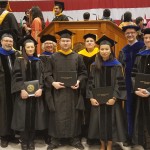 J. Brad Barnett (PhD Candidate, SS), published a paper, “An evaluation of the UK’s use of SFM standards to procure solid woody biomass for electricity generation using sustainable bioenergy criteria”, in Biofuels, Vol. 7, No. 1, January 2016, pp. 1-11.
J. Brad Barnett (PhD Candidate, SS), published a paper, “An evaluation of the UK’s use of SFM standards to procure solid woody biomass for electricity generation using sustainable bioenergy criteria”, in Biofuels, Vol. 7, No. 1, January 2016, pp. 1-11.
From Tech Today.








